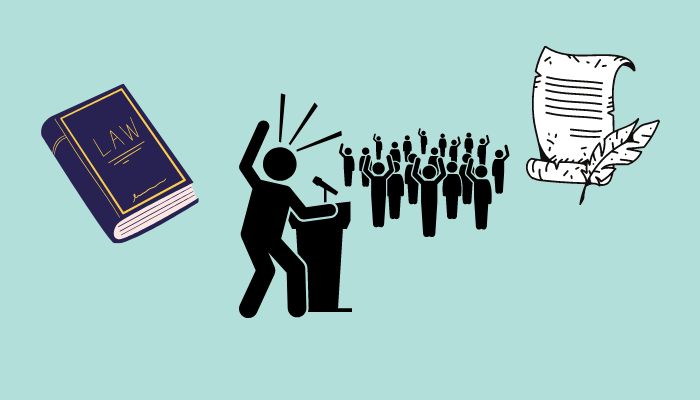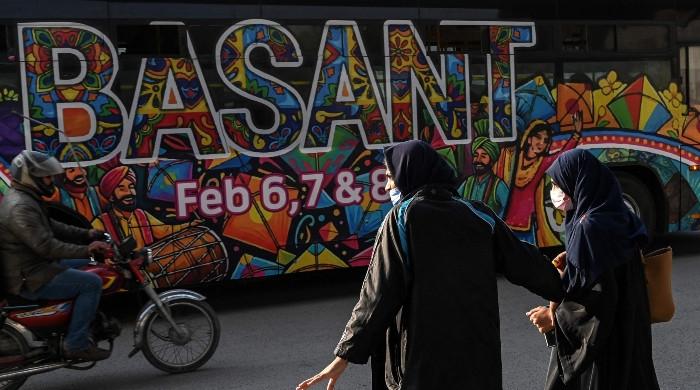Democracy is a process, not an event
People of the state of Pakistan have been isolated from decision-making process not from today or yesterday, but for decades now
July 26, 2022

Power politics in Pakistan has a long history. Almost every regime did its best to propagate, manipulate and temper the constitution's fabric to for its own interest.
Institutions' subjective interpretations depend not only on constitutional verdicts but generally on the nature of the state, philosophy of politics and even on the question of what is oppressive and what is not. This subjectivity of opinions is often because of the interest of the status quo and does not align with the interest of people.
The people of the state of Pakistan have been isolated from the decision-making process not from today or yesterday but for decades now. What we are witnessing these days in Punjab or in the federation shows that whatever happens in the politics of Pakistan is influenced by drawing room meetings and not through the consensus of the people.
We call our political system ‘democracy’ – a system of the majority and the interests of everyone. But there is a flaw in the system. Democracy is not just a word, and not something that comes through random legislation or elections etc. Democracy is a process that can only function when it is embedded in the culture and routine of the people. It can only flourish when it evolves through reforms, education and civic sense, which too requires a consensus of the people, decentralization and separation of powers. But the most important part of a democratic system is a structural shift of society from a feudal and tribal setup to a working-class urbanized society. We could analyse this with the Indian land reforms after Partition.
Congress initiated land reforms that resulted in the abolishment of Zamindari (feudal land practices) from various states. The Indian government took possession of land and distributed it to the farmers. This helped the state negotiate with the cultivators of that land who used to be the ones creating surplus, thus freeing them from the will of landlords in politics. However, this did not wipe out landlordism from all of India – but the precedent has been set that the political will of the non-existent class of colonial times is worthy to make democracy function.
Contrary to India, Pakistan's political elite assumed that the social apparatus is not ready for popular democracy. One reason for this assumption is justifiable – because the bureaucratic elite and feudals of this region were higher up in the decision-making process. For eight years, Pakistan functioned upon the 1935 Indian Act. In those eight years – when India with more land, population and complex crises was conducting land reforms, giving voice to popular will for the sake of democracy and conducting two elections through the 1950 constitution – Pakistan’s political class was experiencing a power tussle. It is no surprise that four governor generals and seven prime ministers were changed within only eleven years until Ayub Khan ousted Iskander Mirza and declared martial law.
This power-hungry attitude in local politics, interpretations and manipulation of laws did no good to Pakistan in the early days and is not doing any good now. The democratic evolution in Pakistan never kicked off in the first place – not because people were not ready but because the political elite and establishment were wrangling and conspiring against each other to take charge of the government. Since 2018, the tensions among legislative institutions, executive and the judiciary were evident to the extent that no one was ready to co-exist. Every political party had a subjective opinion about the mandate of the people but we all knew the mandate in Pakistan is less important than the electable. These electables can turn the government’s policies and power equilibrium.
Whatever happens in elections is directed by these electables, manipulated by them crushing the very essence of the democracy that is the collective will of the different layers of classes in Pakistan. Some of these electables have been holding this position for generations and thus no major land, industrial and tribal reform ever happened in Pakistan.
Another thing that is very interesting is that the policy the state initiates when dealing with the international community is not similar to the daily layperson's dealings that would call off in every change of face. But Pakistan’s large-scale policies related to security, economy and administration shift almost every year. The uncertainty implies that a government's functionality is dependent upon the interests of office bearers. Every conflict among these office bearers results in political turmoil and leads to the dramatic climax of government rule. Governments change but the faces remain the same – and yet there is a new policy which too is ineffective; and this circle goes on.
The middle class of Pakistan must understand that whatever drama is running inside parliament, affecting the economy, intensifying human rights abuses and intolerance, it cannot be solved by changing individuals but through full-scale reforms in land, industry and the socio-political relations between the state and the people. A change that would help the ‘parasitic’ or non-existent class to actually participate in the process.
Democratic norms and values demand political dominance of the people over assets, lands and institutions – not the other way around. If the people are sovereign, no parliament can dictate various institutions, no judiciary can meddle in the affairs of government and no subjective interpretation can exist.
The writer is an Mphil scholar, and president of the Progressive Students Federation, Karachi. He tweets @WaqasAalam
Originally published in The News











